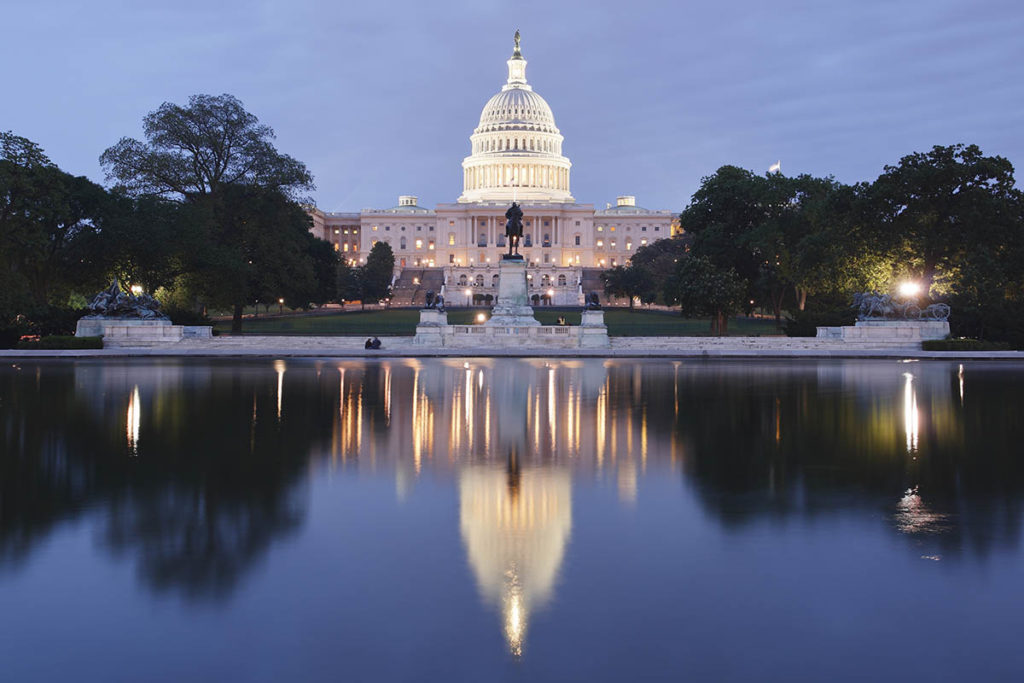
A new Senate budget bill includes direct federal payments to electric cooperatives as incentives for developing renewable energy, carbon capture technology, battery storage, nuclear power and other energy innovations.
Senate Majority Leader Chuck Schumer, D-N.Y., and Sen. Joe Manchin, D-W.Va., announced on July 27 that they had reached agreement on an energy, climate, tax and health care package.
The proposed legislation, known as a budget reconciliation bill, must be reviewed by the Senate parliamentarian to ensure all provisions comply with Senate rules. If the review is completed quickly, the Senate could vote on the legislation as early as the week of Aug. 1. If senators approve the bill, it still must be passed by the House, where it is likely to face opposition from Republicans and some progressive Democrats.
“As electric co-ops continue to innovate and lead, direct access to energy innovation tax incentives is absolutely critical,” NRECA CEO Jim Matheson said in a news release. “This bill creates direct incentives for co-ops to bolster investments in carbon capture, grid modernization, renewables, battery storage and other energy technologies.”
“I thank Senator Manchin for his strong leadership on this issue and his commitment to securing a brighter future for rural America,” Matheson said.
Matheson lauded the fact that “the Senate agreement reflects strong recognition” of the direct-pay provision that NRECA and its member co-ops have emphasized in their advocacy efforts on Capitol Hill.
Co-ops are excluded from the tax incentives that for-profit utilities receive for energy innovation because co-ops are not-for-profit and do not pay federal income taxes. If the legislation is enacted, direct payments would be available for existing technologies already eligible for clean energy tax credits. The bill would also create direct payments for a new slate of technologies.
The Senate legislation also includes a $9.7 billion grant and loan program to help electric co-ops buy or build new clean energy systems.
Similar to a program proposed last year by President Joe Biden, co-ops would be able to receive a grant for as much as 25% of their project cost, with a maximum award of $970 million for any single co-op.
The proposed bill would not mandate reductions in carbon dioxide emissions or require closures of existing power plants.
Erin Kelly is a staff writer for NRECA.